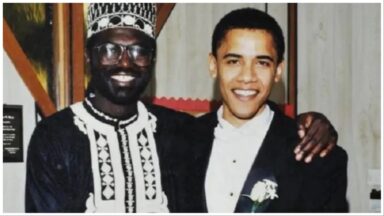By Viviane Faver
About 850 members from nearly four dozen Brazilian indigenous communities are camped in Brasilia to fight for indigenous land rights currently under consideration in the courts and Congress of Brazil. While lawmakers still debate the issue, indigenous peoples continue to be forcibly removed from their villages and even killed because most of these disputes remain unresolved.

According to the Brazilian Institute of Geography and Statistics (IBGE), 817,963 indigenous people live in Brazil, representing 0.4% of the country’s total population. Indigenous peoples in Brazil represent 305 different ethnic groups and speak more than 270 indigenous languages. However, surveys show that less than 12.5% of the land is demarcated for indigenous peoples, which remains a source of tension. One of the most recent examples of this brutality was the attack on Indigenous peoples from the Tekohá Dje’y territory in Paraty, a four-hour drive from Rio de Janeiro. Last month, they were attacked during a meeting of indigenous women in the village, with threats, gunshots, and large dogs used to corner residents during a protective ritual for the community’s nameplate installed at the same event. The village – made up of 32 indigenous people of the Guarani Mbyá and Nhandeva ethnic groups – blocked the entrance to the reserve in a peaceful protest against the alleged theft of an identification plate installed to mark the territory. In an exclusive interview with the deputy chief of the indigenous village, Neusa Kunhã Takuá, she said that there were attempts to run over her nephew with a car while she was threatened with arrest. According to her, military police were at the scene but did not prevent the attacks. “At night, the attackers surrounded our houses in the village and fired shots. We were verbally and physically abused. The situation is hazardous for us.”

The community said the plaque, installed after a traditional three-day ceremony in early June, was forcibly removed on June 9 by citizens opposed to the reserve’s demarcation. What’s going on “We are facing a violent process of demarcation,” said Neusa Takuá, noting that she has received several death threats. “They are trying to paralyze, interrupt the demarcation process.” Indigenous leaders say their community has been under constant attack and intimidation for nearly two years. “The Tekohá Dje’y is under daily attacks, under pressure from land grabbers, real estate speculators, landowners, and under the widespread abandonment of federal and municipal governments with an openly anti-indigenous policy,” the community wrote in a statement. According to Neusa Takuá, authorities have failed to provide robust protection to their community, claiming that these settlers support local lawmakers who have repeatedly demonstrated against the demarcation. It is good to remember that the village occupies an area of interest for several tourist and agribusiness ventures, which increases conflicts over land.

The Federal Police said in a press release that it has “acted within the limits of its prerogative, investigating crimes under federal jurisdiction, and in a preventive manner, promoting dialogue between those involved and supporting the responsible bodies and authorities.” The Guarani Nhandeva people have already occupied parts of southern Brazil, northern Argentina, and eastern Paraguay, according to the Instituto Socioambiental, an ORG that defends environmental diversity and the rights of indigenous peoples. With the arrival of European settlers, the Guarani territories became the stage for disputes due to the region’s strategic importance for the settlers. The attack on Tekoha Dje’y is not an isolated case. In the Yanomami reserve, in the state of Roraima, the attackers reportedly threw gas bombs and opened fire on indigenous people with automatic weapons in a series of attacks last month. FUNAI officially recognized the Tekohá Dje’y reserve in 2017. However, the demarcation process in Brazil could take years. Non-indigenous residents are not required to leave until the reservation is fully demarcated and the government issues an eviction order. The Federal Public Ministry informed that it urgently requested the government to move forward with the demarcation last year, highlighting the violence in the indigenous reserve.

The Munduruku Indigenous Reserve in the state of Pará is also under attack, with illegal miners shooting and burning the homes of indigenous leaders in late May. A couple of weeks ago, authorities arrested the head of an association of illegal miners and the deputy mayor of the municipality in connection with the attack, according to the Federal Police and indigenous groups. Violence on indigenous reservations occurred when around 800 indigenous leaders gathered last month in Brasília to protest against several anti-indigenous proposals currently underway in Congress. This includes a bill that would allow illegal miners to exploit indigenous reserves.



Recent Comments